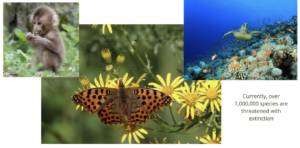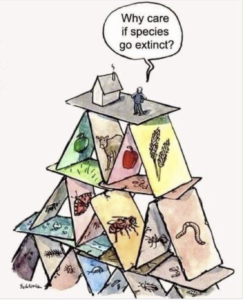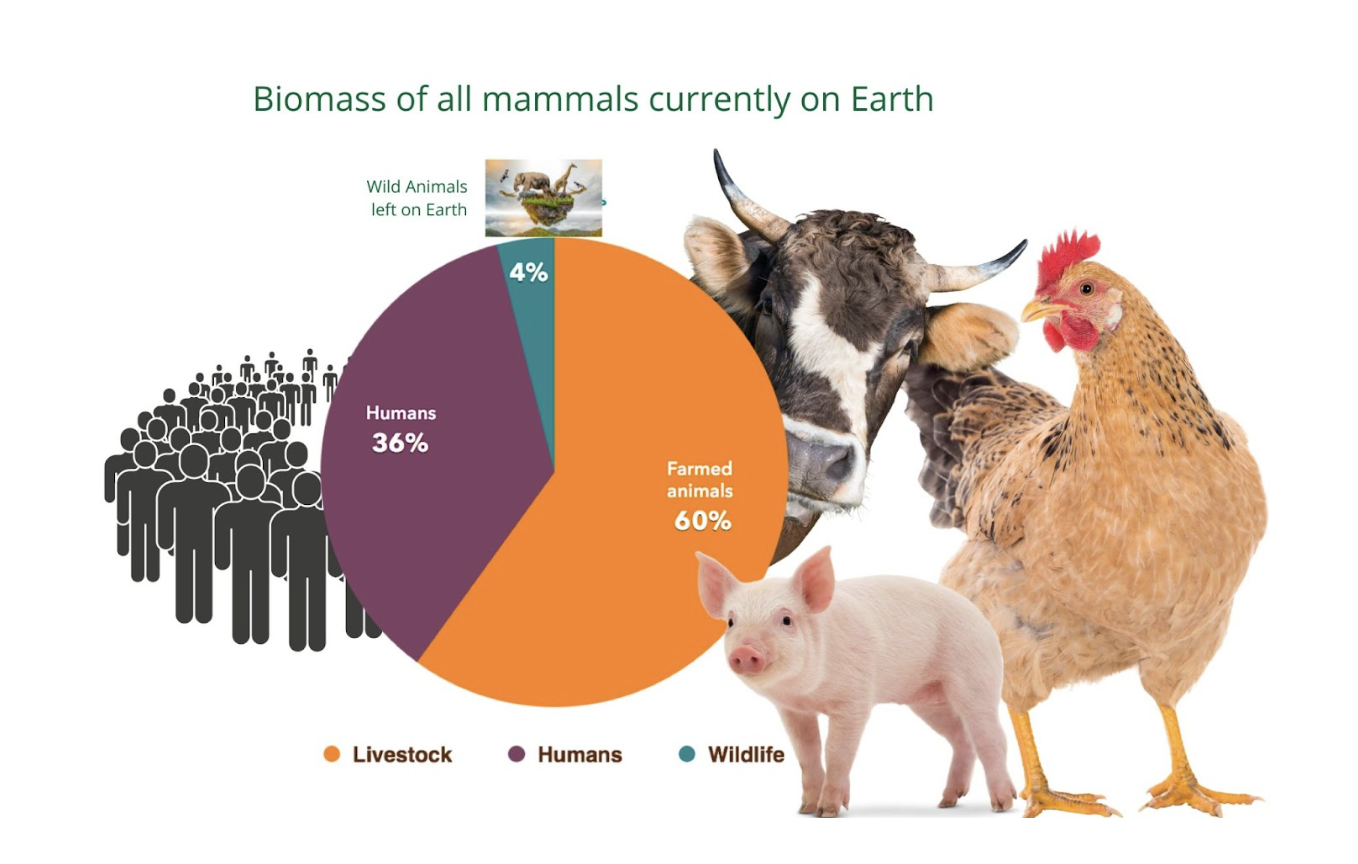By Dawn A. Byford and Kris Cameron, Co-Chairs of the ESRAG Plant-rich Diet Taskforce
“Biological diversity — or biodiversity — is the variety of life on Earth in all its forms, from genes and bacteria to entire ecosystems such as forests or coral reefs. The biodiversity we see today is the result of 4.5 billion years of evolution, increasingly influenced by humans.” United Nations

Currently, over 1,000,000 species are threatened with extinction
Did you know? The current rate of biodiversity loss is as serious a threat to life on Earth as climate change. In 2019, nearly 1,000,000 species were at risk of extinction; sadly, that rate is accelerating. The global rate of species extinction today is orders of magnitude higher than the average rate over the past 10 million years. Biodiversity is vital to all life on Earth and without it, the stability and resilience of all ecosystems are in danger, which means we are in danger. Sir David Attenborough explains it beautifully in this short video.
Just as biodiversity is vital to the planet’s health, it is also critical to human health. We have an internal ecosystem in our digestive tract, or gut microbiome, which relies on a diversity of bacteria to thrive, just like any ecosystem. The more diverse it is, the healthier we tend to be. This shows up as more energy, a stronger immune system, better digestion, less inflammation, easier absorption of nutrients, and overall increased resilience, just to name a few of its positive impacts.
What’s the best way for us to build a strong microbiome? Eat fibre. Where is fibre found? In plants!
It may seem obvious, but we are Nature, and Nature is us. Eating whole-food plant-rich meals is a win-win for all! It not only helps keep us healthy, but it also helps save planetary biodiversity. Why? Industrialized animal agriculture is a major driver of biodiversity loss on both land and sea.

Biodiversity is vital to all life on Earth and without it, the stability and resilience of all ecosystems are in danger, which means we are in danger
Eating more plants and fewer animal products helps us stay well, and protects our wild species.
Watch EAT-Lancet Commission’s Planetary Health Diet video for tips on building a more human and planet-friendly plate.
To help get you started, check out this super easy and delicious Black Bean Corn Salsa. It’s chock full of a variety of whole plant foods, containing many beneficial nutrients and fibre to help keep your microbiome diverse and happy! More fun facts: Beans are one of the most sustainable foods on the planet, and just one cup provides up to 60% of our recommended daily fibre and 30% of our recommended daily protein.
All Rotarians can choose the plant-based foods that work for their lifestyles. We invite you to learn how, by taking the delicious ESRAG 15-Day Plant-Rich Diet Challenge—a guided journey to improved personal and planetary health. Here’s a preview presentation from the Challenge with excellent tips to get you started. The Challenge also includes a cookbook, recipes, and much more!
The time for Rotarian action to help transform our food systems is now.
For more information visit our webpage or email us at [email protected].
Follow us on Facebook and Instagram.
Cartoon Credit: Twitter/@ParveenKaswan): “Repeating my words. All are free to use my clicked pictures, tweets, information shared etc. in whatever manner they want. No credits required. No formalities.”

